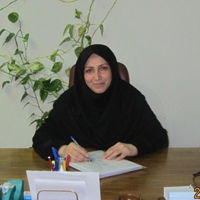Analysis of Competitiveness Components Affecting the Realization of Urban Knowledge-Based Economy (Case study of Kerman city)
Cities have been competing with each other since its inception, with increasing urbanization and the complexity of the urban system. In an age that we call the age of knowledge and economics as a knowledge-based economy and global competition, we see intense competition between countries at the international level and cities at the national level. Therefore, the purpose of the research is to investigate the impact of competitiveness components on the promotion of urban knowledge-based economy in Kerman.The research method in this study is applied in terms of purpose and descriptive-analytical in terms of method. Most of the data are based on field studies and questionnaires from 30 experts in the field of urban planning in the region. Findings of the study based on the method of Analysis Hierarchi Procces(AHP) show that between the indicators related to economic factors and indicators related to social factors, the coefficient of economic factors including: "economic performance", "economic structure and capacity", "technology transformation" "Information gathering", "Economic transformation", "Space transformation" and "Marketing" with a rate of 59.5% have the greatest impact on social factors including: "human resources", "quality of life", "level of urban development", "performance "Government" and "Environmental Performance" account for 40.5% of the total final weight. And among the 11 economic and social components of competitiveness affecting the formation of urban knowledge-based economy, economic structure and capacity and economic performance with 12 and 10.5, respectively, the formation of knowledge-based economy have the highest impact factor. Therefore, in order to achieve comprehensive development, the city of Kerman needs effective attention to economic factors, because the most effective drivers of social factors are the most effective drivers in the formation and promotion of knowledge-based economy in the city of Kerman.
-
Analysis of the livelihood diversity effects on rural household resilience in the face of climate changeCase study: Suburban villages of Dehdasht city
Soroush Sanaei Moghadam*, Ali Akbar Anabestanei, Bijan Rahmanei, Farhad Azizpour
Quarterly Journal of Space Economy & Rural Development, -
Evaluation and prediction of land use changes in Arak and surrounding villages using hybrid cellular automata-Markov chain model
Soha Tavakoli, Bijan Rahmani *, Ali Akbar Anabestani
Journal of Urban Peripheral Development, -
A Comparative Study of Policies and Laws, and Leadership Statements on Food Security Based on Good Governance Principles
Sayyed Shabnaz Ettehad, *, Mohamadrahim Rahnama
Quarterly Journal of The Macro and Strategic Policies, -
Structural-interpretive modeling of food security in Mashhad city with a good governance approach
Seyyede Shabnaz Ettehad, *, Mohamamdrahim Rahnama
Geographical Urban Planning Research,




